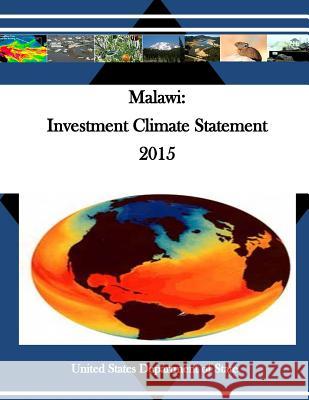Malawi: Investment Climate Statement 2015 » książka
Malawi: Investment Climate Statement 2015
ISBN-13: 9781530700769 / Angielski / Miękka / 2016 / 24 str.
Malawi: Investment Climate Statement 2015
ISBN-13: 9781530700769 / Angielski / Miękka / 2016 / 24 str.
(netto: 56,43 VAT: 5%)
Najniższa cena z 30 dni: 55,53 zł
ok. 13-18 dni roboczych.
Darmowa dostawa!
Malawi is open to foreign direct investment. In general there are adequate legal instruments to protect investors and such investors are accorded national treatment. Malawi's constitution prohibits deprivation of an individual's property without due compensation. There is an established mediation process to promote agreements between parties in disputes before court proceedings start. Both foreign and domestic investors have access to Malawi's legal system, which functions fairly well and is generally unbiased. All investors have the right to establish, acquire, and dispose of interests in business enterprises. Foreigners require a business residence permit (BRP) to carry out any business activity in Malawi. Government continues to undertake various reforms to ensure that no tax, labor, environment, health and safety or other laws distort or impede investment. However, procedural delays and red tape continue to impede the business and investment approval process. Malawi has been largely free of political violence since gaining independence in 1964. Although divisions do exist, Malawi has no significant tribal, religious, regional, ethnic, or racial tensions that could be expected to lead to violent confrontation. Although progress has been made addressing the issue of corruption, it continues to be viewed as a major obstacle to doing business in Malawi. There have been serious allegations of corruption, which is perceived to be particularly endemic in the following sectors: police, immigration, road traffic, tax administration, traditional leaders, and government procurement.











